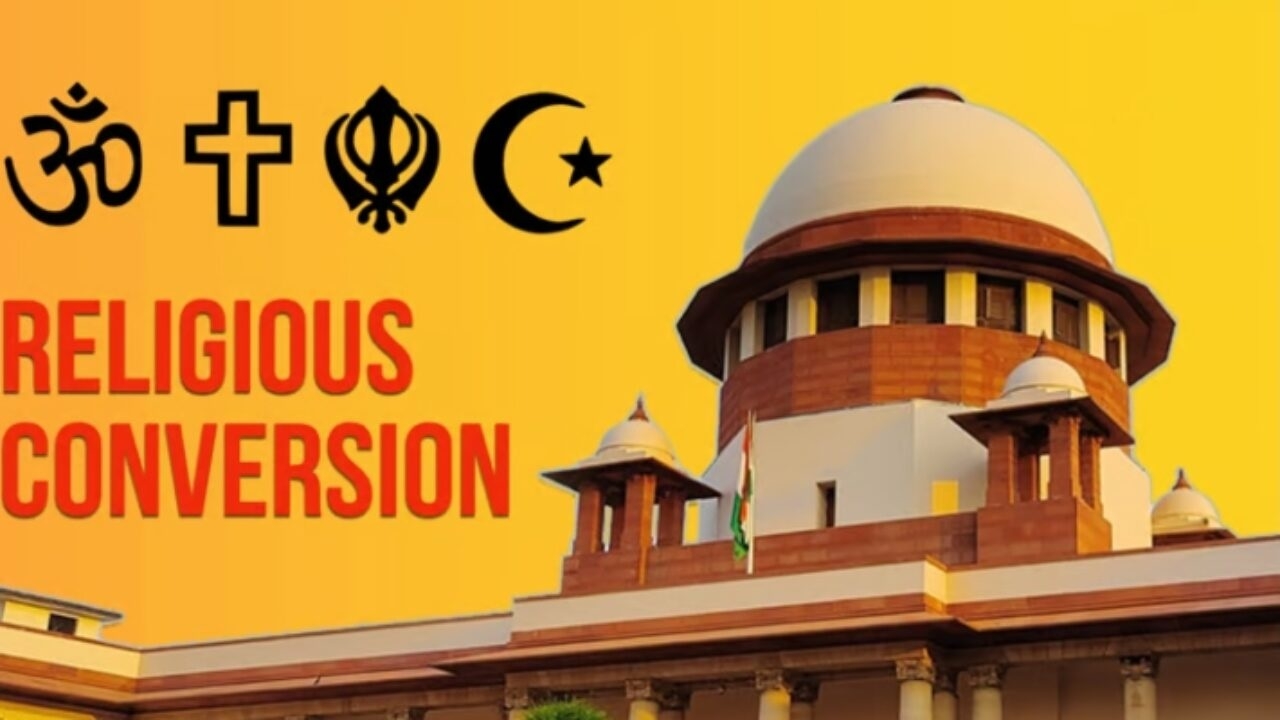SC rules against religious conversion for quota benefits
28 Nov 2024 11:07:34

NEW DELHI :
IN A significant verdict, the Supreme Court has said religious conversions undertaken solely to avail reservation benefits without genuine belief amounted to a “fraud on the Constitution”.
Justices Pankaj Mithal and R Mahadevan passed the verdict on November 26 in a case filed by one C Selvarani and upheld a Madras High Court decision of January 24 denying a scheduled caste certificate to a woman who converted to Christianity but later claimed to be a Hindu to secure employment benefits.
Justice Mahadevan, who wrote the 21-page verdict for the bench, further underscored that one converted to a different religion, when they were genuinely inspired by its principles, tenets and spiritual thoughts.
“However, if the purpose of conversion is largely to derive the benefits of reservation but not with any actual belief in the other religion, the same cannot be permitted, as the extension of benefits of reservation to people with such ulterior motives will only defeat the social ethos of the policy of reservation,” he noted.
The evidence presented before the bench was found to have clearly demonstrated that the appellant professed Christianity and actively practiced the faith by attending church regularly.
“Despite the same, she claims to be a Hindu and seeks for a SC community certificate for the purpose of employment,” it noted.
“Such a dual claim made by her,” said the bench “was untenable and she cannot continue to identify herself as a Hindu after baptism”.
The top court, therefore, held the conferment of scheduled caste communal status to the woman, who was a Christian by faith, but claimed to be still embracing Hinduism only for the purpose of availing reservation in employment, “would go against the very object of reservation and would amount to fraud on the Constitution”.
The top court underlined a religious conversion solely to access reservation benefits, without genuine belief in the adopted religion, undermined the fundamental social objectives of the quota policy and her actions were contrary to the spirit of reservation policies aimed at uplifting the marginalised communities.
Selvarani, born to a Hindu father and a Christian mother, was baptised as a Christian shortly after birth but later claimed to be a Hindu and sought an SC certificate to apply for an upper division clerk position in Puducherry in 2015.
While her father belonged to the Valluvan caste, categorised under scheduled castes, he had converted to Christianity, as confirmed by documentary evidence.
The verdict said the appellant continued to practice Christianity, as seen by the regular church attendance, making her claim of being a Hindu untenable.
The bench noted individuals converting to Christianity lose their caste identity and must provide compelling evidence of reconversion and acceptance by their original caste to claim SC benefits.
The judgement said there was no substantial evidence of the appellant’s reconversion to Hinduism or acceptance by the Valluvan caste.
Her claims lacked public declarations, ceremonies, or credible documentation to substantiate her assertions, it pointed out.
“One converts to a different religion when genuinely inspired by its principles. Conversion purely for reservation benefits, devoid of belief, is impermissible,” the bench held.
The apex court opined in any case, upon conversion to Christianity, one lost their caste and couldn’t be identified by it.
“As the factum of reconversion is disputed, there must be more than a mere claim. The conversion had not happened by any ceremony or through ‘Arya Samaj’. No public declaration was effected. There is nothing on record to show that she or her family has reconverted to Hinduism and on the contrary, there is a factual finding that the appellant still professes Christianity,” it noted.